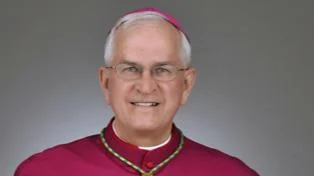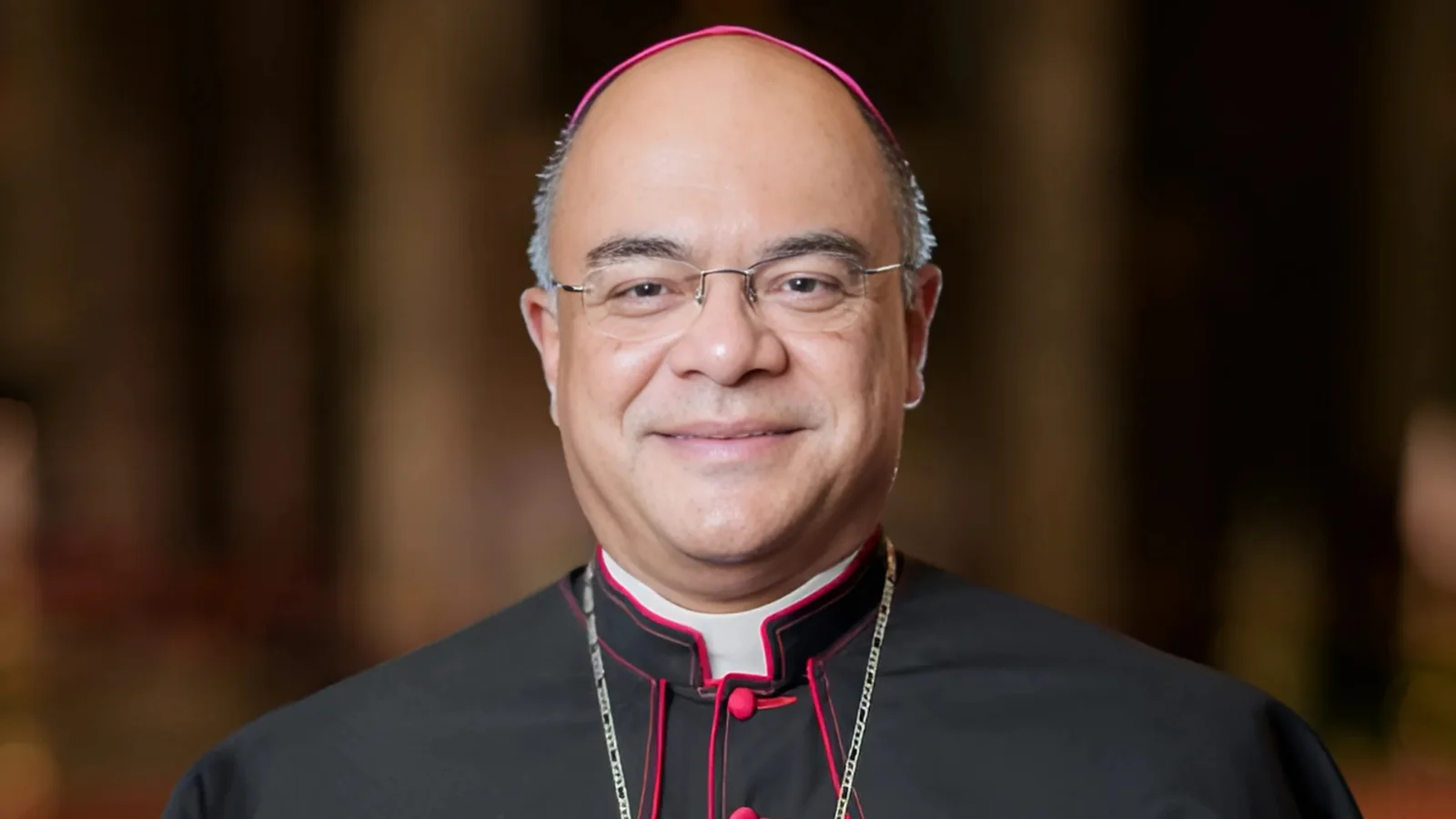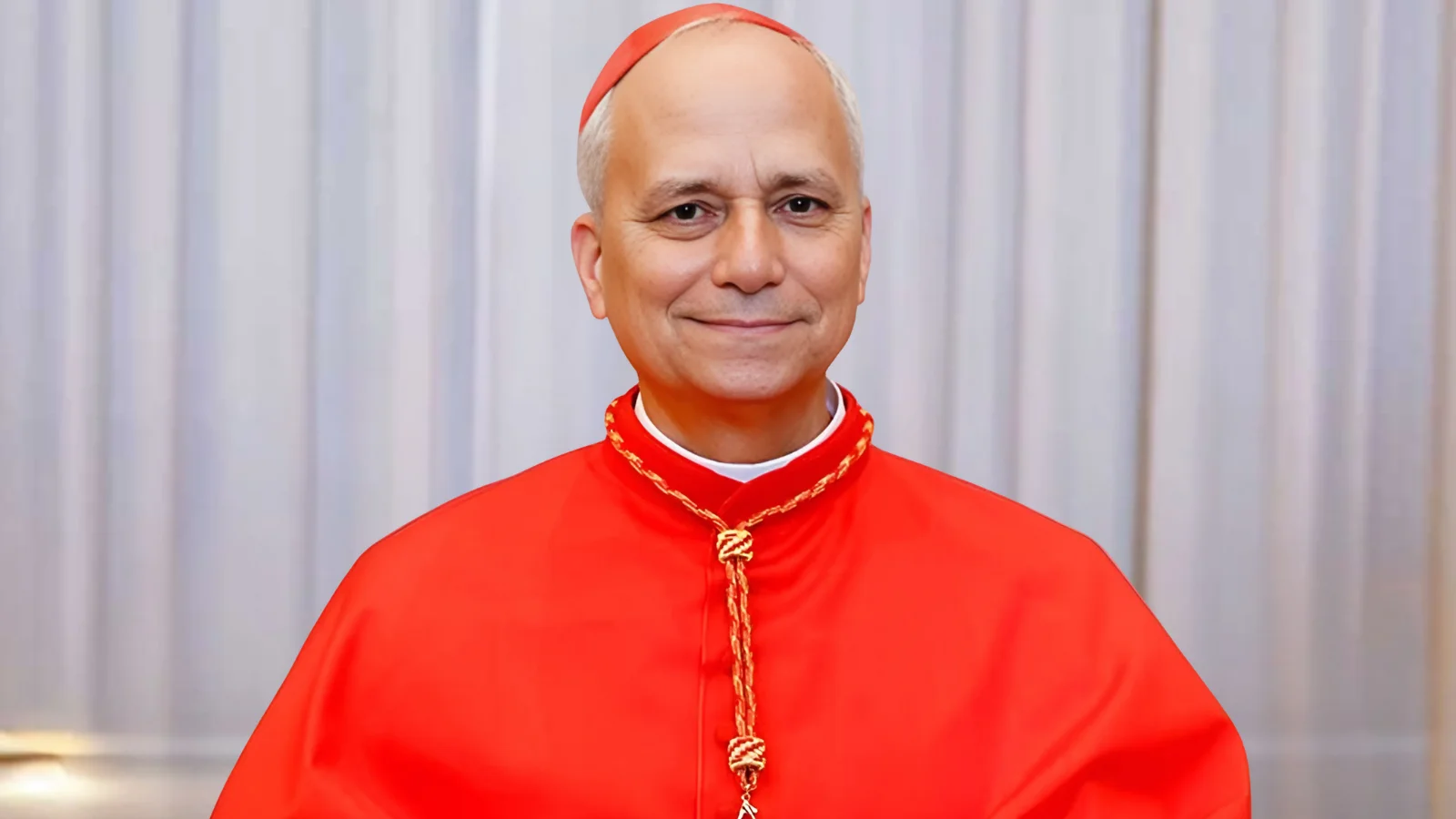
Reverend Joseph E. Kurtz, D.D. Bishop | Archdiocese of Louisville
Service opportunities that bring young people into direct contact with others can help foster respect for human life, according to Stuart Hamilton, pro-life event coordinator for the Archdiocese of Louisville. In a recent interview, Hamilton discussed how social media often shapes youth perspectives in ways that can devalue those who are different.
Hamilton said that today’s generation experiences much of the world through digital platforms, which “diminishes the value of people that are different than us.” He added, “People are made fun of, and sometimes they’re even demonized. They’re not really seeing these people as humans when they’re watching a short reel making fun of them.”
He also noted the role algorithms play in reinforcing negative perceptions: “If you’re watching something that’s critical of a particular kind of person, the computer just feeds you more of what you’re watching.”
To counteract these influences, Hamilton emphasized the importance of real-life encounters. “What happens when you start to encounter people is that you begin to see them as human. They’re not just memes or jokes, or a visual or an abstract idea. They’re actual people,” he said.
As part of its efforts during October’s Respect Life Month, the archdiocese’s pro-life ministries—under the Office of Family and Life Ministries—is organizing youth service days. Parish youth groups will have service opportunities on October 25 at Little Way Pregnancy Center and Catholic Charities; Catholic high schools will participate on October 15 and 29.
Hamilton believes early involvement in service projects helps create empathy among youth and shapes their worldview. He explained, “The earliest experiences youth can have where they encounter these ideas with an actual service project, where they meet these people, I think that creates empathy, and it informs their worldview.”
He stressed consistent engagement in such activities makes it less likely for young people to be influenced by broader cultural trends. For example, while teaching about the dignity of individuals with disabilities is important, meeting someone with a disability has a greater impact: encountering someone directly “makes a fundamentally different impact on the human heart,” he said.
Hamilton also pointed out that active volunteer work is more impactful than only participating in drives or fundraising events: “Although it is fundamental, necessary to do clothing drives and to raise funds for different ministries, it’s very important for youth to have an incarnational, authentic experience encountering people.”
These experiences could include serving food to those experiencing hunger or visiting nursing homes.
Parents play a key role in encouraging such encounters. According to Hamilton: “The children will model the values of their heart after their parents.” He urged parents not to rely solely on schools but instead provide real-world experiences themselves.
He observed changes brought by technology: before smartphones were widespread parents had to find ways for children to stay engaged in community activities; now it can be easier for kids simply to spend time online. Parents should ask themselves how they can give their child meaningful interactions outside everyday circles.
Hamilton suggested volunteering together at pregnancy centers or attending Masses focused on life issues as practical steps families could take—and discussing those experiences afterward opens conversations about difficult topics.
Other adults—including grandparents and parish leaders—also contribute by supporting young people's faith development through shared values and experiences outside home environments.
“Every adult needs to be concerned about helping the youth have these encounters so that they can really have a view of human life that reflects the values of Christ’s teaching,” Hamilton said.
“Youth will be more likely to retain their values and their faith if they have at least one adult, that is not their parents, supporting them in their values and their worldview and helping them experience those things. So for some, that’s a youth minister; some it’s a grandparent or an uncle,” he added.
Despite challenges posed by digital culture shifts among younger generations Hamilton remains optimistic: The youth are “hungry for truth and starving for connection,” he said. This gives him hope because “what they’re hungry for is the truth of Christ, and I think what they’re starving for is the connection with fellow men which the church provides.”
For further information about resources from the Office of Family and Life Ministries or contacting Stuart Hamilton directly—including subscribing free-of-charge to the “Dignity of Life” e-newsletter—contact details are available via phone (636-0296) or email (family@archlou.org / shamilton@archlou.org).





 Alerts Sign-up
Alerts Sign-up